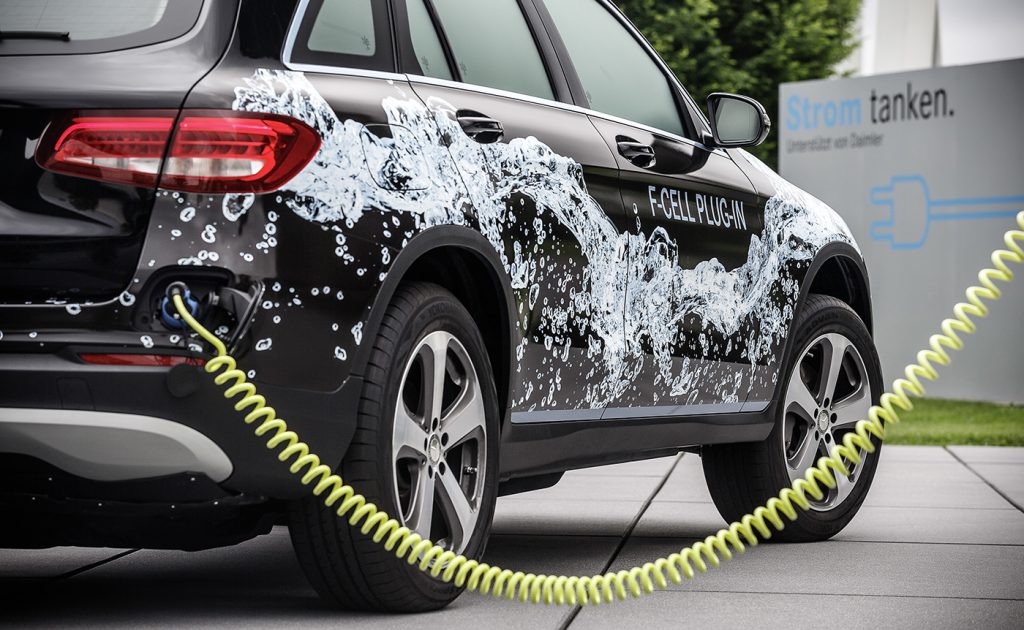Here’s a clever idea. This, as Mercedes claims, is a hydrogen car like no other. Most hydrogen cars such as the Toyota Mirai and Honda FCX Clarity use their hydrogen fuel cells to power an electric motor driving their wheels. But what makes the GLC F-Cell different is that it combines a hydrogen fuel cell with a lithium-ion battery pack.
It’s genuinely the best of both worlds. People get all up and arms on whether hydrogen fuel cell vehicles are better than battery-powered electric vehicles, or vice versa. But here we’ve got both. The GLC F-Cell is said to have a range of 500km from its fuel cells and 50km on the batteries. Whether you have an urban-centred lifestyle or one that requires covering long distances, the combination of a fuel cell and battery pack has you covered.
If it’s beginning to sound like I’m getting excited by the prospect of having a car run from batteries and hydrogen, you’d be right because it gets ride of all the range anxiety issues of a conventional battery-powered EV, gives you the option to either fill up the hydrogen tank in a couple of minutes, or plug into a wall socket at home or at work. Frankly why Toyota and Honda didn’t think about this sooner baffles me.
The fuel-cells are stored in the front of the car, while the hydrogen tanks and 9.0kWh lithium batteries are at the rear. Unlike other GLCs, the F-Cell is rear-wheel drive only. The system was co-developed with Ford so it’d be interesting to see what car they’ll use the application on.
It’s quite interesting Mercedes used the GLC as a base. You’d think one of their small hatchbacks or a C-Class would be a more conventional base. But with the trend of SUVs and crossovers at an all time high it’s the best way to make this technology appeal to consumers.
That is unless you live in New Zealand or any other country without a large hydrogen fuelling infrastructure. Even though the F-Cell can run on the battery power, Mercedes will only be offering the GLC F-Cell in established hydrogen markets such as California, Japan, and Germany.
What are your thoughts on this new take on EVs?
